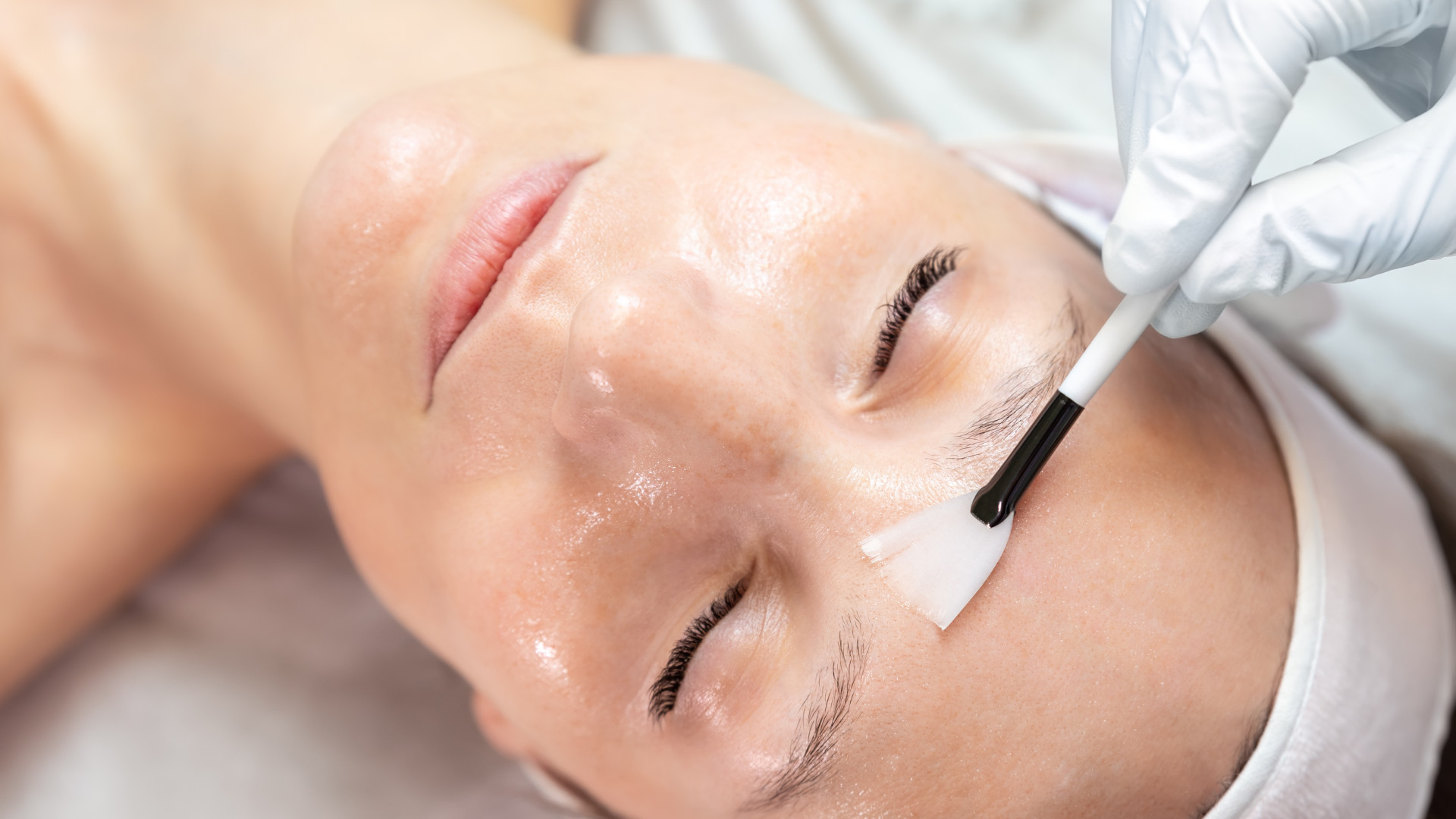Chemical exfoliation is a process by which the skin is removed through the use of chemical agents, as opposed to mechanical means such as scrubbing.
This can be done in a variety of ways, but one of the most popular methods is to use an acid such as glycolic acid or salicylic acid.
By removing the top layer of skin, chemical exfoliation can help to improve the overall appearance of the skin by reducing the appearance of fine lines, wrinkles, and age spots.
Chemical exfoliation is usually done regularly, but it is important to consult with a dermatologist or other skincare professional before beginning any treatment.
Why chemical exfoliation is a good idea
Chemical exfoliation is a good idea for a variety of reasons. First and foremost, it can improve the appearance of your skin, tackling fine lines, wrinkles, and age spots.
It can also help to unclog pores and reduce the occurrence of breakouts. Chemical exfoliation is best done regularly and can be done at home or in a salon, depending on preference.
What chemical exfoliation does to the skin
Chemical exfoliation can do a lot for the skin.
There are a few different types of chemical exfoliants that can be used, but the most popular are glycolic acid and salicylic acid. Glycolic acid is an alpha hydroxy acid (AHA) that works by dissolving the bonds that hold dead skin cells together.
This helps to slough off the top layer of dead skin cells, revealing the brighter, fresher skin underneath. Salicylic acid, on the other hand, is a beta-hydroxy acid (BHA) that penetrates deep into the pores to break up clogs and reduce inflammation.
If you choose to do it at home, there are a few different ways you can go about it. You can use an at-home chemical peel, which typically contains glycolic acid or salicylic acid.
You can also use a chemical exfoliating cleanser or toner, which usually contains glycolic acid. If you have sensitive skin, you may want to opt for a chemical exfoliating serum, which usually has a lower concentration of active ingredients.
Chemical exfoliation should be done regularly, but it is important to consult with a dermatologist or other skincare professional before beginning any treatment. The frequency with which you exfoliate will depend on your skin type and the strength of the product you are using.
Generally speaking, those with oily or acne-prone skin can exfoliate more frequently than those with dry or sensitive skin.
Chemical exfoliations risks and side effects
Chemical exfoliation can be a great way to improve the look of your skin, but it is important to be aware of the risks and side effects associated with it. First and foremost, chemical exfoliants can cause irritation and burning if used incorrectly.
It is important to start out using a lower concentration of active ingredients and increase the amount over time if needed.
Chemical exfoliants can also cause sun sensitivity, so it is important to use sunscreen when using them. chemical exfoliants can also increase the risk of skin cancer, so it is important to avoid sun exposure when using them.
Chemical exfoliants can also cause side effects such as redness, dryness, and flaking. If you experience any of these side effects, it is important to discontinue use and consult with a dermatologist or other skincare professional.
How often chemical exfoliation should be done
Chemical exfoliation should be done regularly, but it is important to make sure you are aware of your skin’s needs before beginning any treatment. The frequency with which you exfoliate will depend on your skin type and the strength of the product you are using.
Generally speaking, those with oily or acne-prone skin can exfoliate more frequently than those with dry or sensitive skin. As chemical exfoliants increase your risk of skin cancer, so you must be sure that you can limit your sun exposure when considering this treatment.
If you experience any side effects, it is important to discontinue use and consult with a dermatologist or other skin care professional.
Chemical exfoliation at home
There are several great products available for chemical exfoliation at home. One of the most popular is the chemical peel. There are a variety of chemical peels available, but most contain glycolic acid or salicylic acid.
Another popular option is chemical exfoliating cleansers and toners. These products usually contain glycolic acid and work by penetrating deep into the pores to break up clogs and reduce inflammation.
If you have sensitive skin, you may want to opt for a chemical exfoliating serum, which usually has a lower concentration of active ingredients. These serums work by lightly exfoliating the skin, rather than stripping away the top layer of skin like a chemical peel.
When it comes to chemical exfoliation, there are several great products available. Here are ten of the best chemical exfoliators on the market today:
1. Peter Thomas Roth Max Complexion Correction Pads
2. Paula’s Choice Skin Perfecting 2% BHA Liquid Exfoliant
3. The Ordinary AHA 30% + BHA 2% Peeling Solution
4. Biologique Recherche Lotion P50 1970
5. Drunk Elephant T.L.C. Framboos Glycolic Night Serum
6. Sunday Riley Good Genes All-In-One Lactic Acid Treatment
7. DermaDoctor Kakadu C 20% Vitamin C Serum
8. First Aid Beauty Facial Radiance Pads
9. GLAMGLOW GLOWPOTION™ Glycolic Acid Cleanser
10. PCA Skin Exlinea Peptide Smoothing Serum
Conclusion
Chemical exfoliation can be a great way to improve the look of your skin, but it is important to be aware of the risks and side effects associated with chemical exfoliants.
First and foremost, chemical exfoliators can cause irritation and burning if used incorrectly. It is important to start out using a lower concentration of active ingredients and increase the amount over time if needed.
Chemical exfoliants can also cause sun sensitivity, so it’s best to use sunscreen when using them as chemically exfoliates can also increase the risk of skin cancer, so you should avoid sunlight exposure when possible.
If you experience any side effects such as redness or dryness while using these products, discontinue use immediately!

